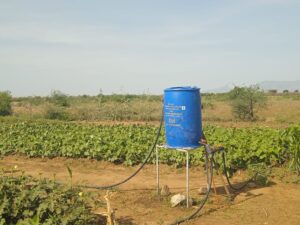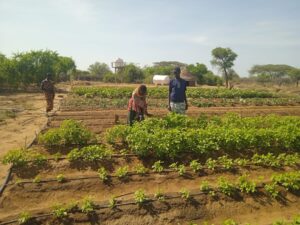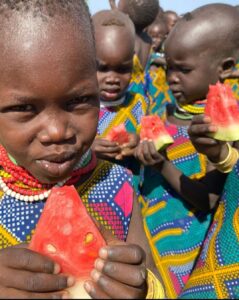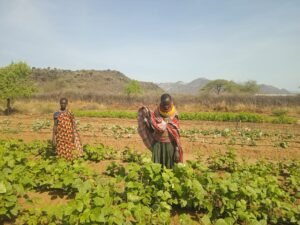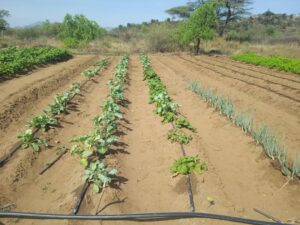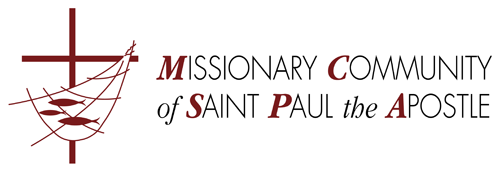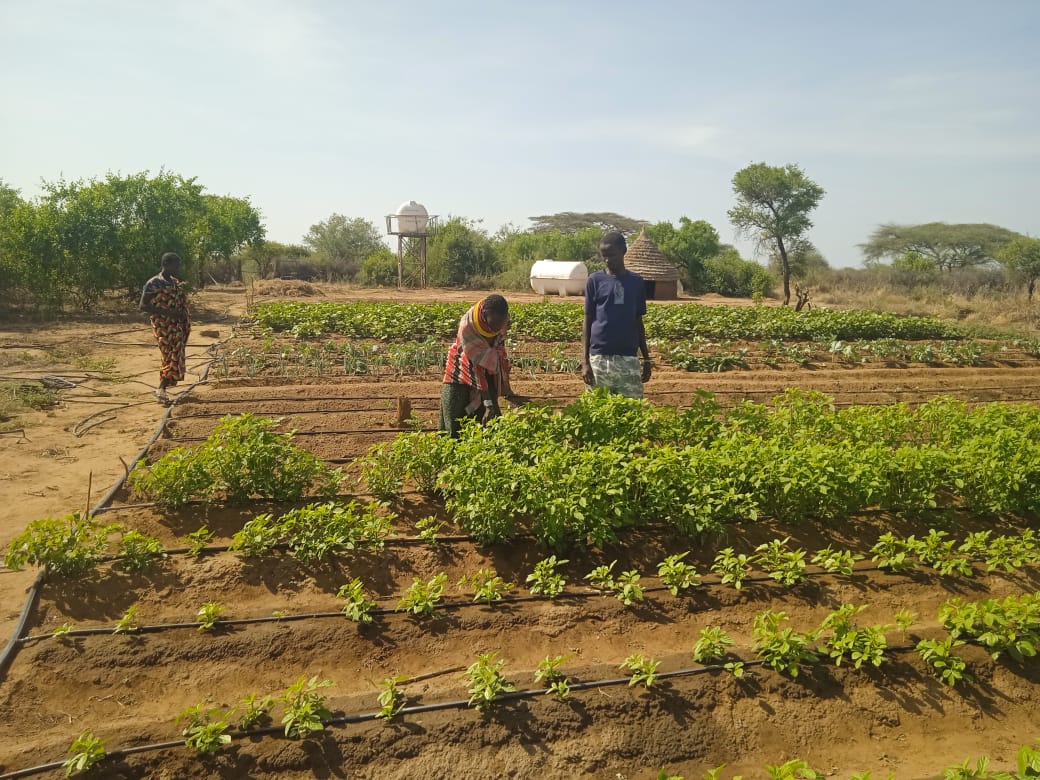The inhabitants of Nyangatom region in south-west Ethiopia are agro-pastoralists. The biannual rainfall pattern in the area allows them to practice rain-fed agriculture during the two rainy seasons, ranging roughly from April to June and then from September to November. The main crops grown are sorghum, maize and beans. What is not a common agricultural practice is the cultivation of fruit trees and vegetables. Moreover, scarcity of water due to prolonged droughts pose a serious risk to subsistence farming and hence to food security.
In response to this problem of food shortage, members of the Missionary Community of St. Paul the Apostle (MCSPA) at the Prince of Peace Catholic Mission at Nyangatom have come up with pilot farms both at Kakuta and Naturomoe schools so as to help women acquire new skills in farming.
We use the drip system of irrigation at the farms, and despite the scarcity of water in the region, we are now able to produce vegetables and fruits on the farms. The fruit from the farms is enjoyed by many in the area, especially the children at both the schools.
By Kevin Rakara
MCSPA Apprentice
Nyangatom Mission, Ethiopia
